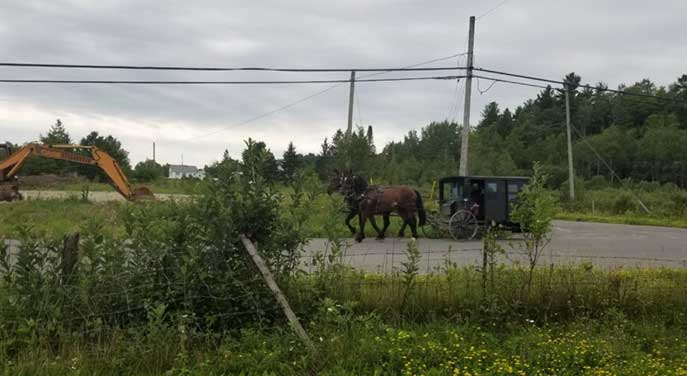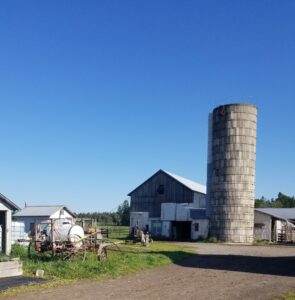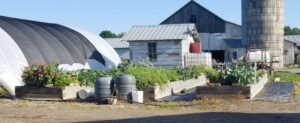- Second World War attack helped shape Bell Island’s history
- War, tragedy, and a Broadway hit all part of Gander’s celebrated past
- Proud captain sails to Canada’s other ‘distinct society’: Newfoundland
- What the heck is bike touring anyway? It’s an experience
- COVID panic? Keep calm and carry on with bike tour planning
- It’s not about where we travel but why
- ConnecTour Chronicles: Kindness comes in a bucket of ice and jug of water
- ConnecTour Chronicles: One man’s gear is another man’s gold
- ConnecTour Chronicles: A brush with heat stroke and then hypothermia
- ConnecTour Chronicles: Content to live with old mining town’s ghosts
- ConnectTour Chronicles: Highlights, lowlights and lessons learned so far
- ConnecTour Chronicles: An artistic treasure trove in a former biker bar
- ConnecTour Chronicles: Even in Banff, COVID-19 has left its mark
- ConnecTour Chronicles: A life-saving gift for our son-in-law
- ConnecTour Chronicles: A pool party on the Prairies
- ConnecTour Chronicles: Antique store owner revives memories
- A sudden, frightening crash sidelines one of our cyclists
- ConnecTour Chronicles: Out of the blue, an army on the prowl
- ConnecTour Chronicles: Cheap rural living brings brewery dream to life
- ConnecTour Chronicles: Warmshowers hosts have equally warm spirits
- ConnecTour Chronicles: A bicycle clinic that started with a bang
- ConnecTour Chronicles: Lodges hanging on by a thin fishing line
- ConnecTour Chronicles: A private fantasy world, rich in local and family history
- ConnecTour Chronicles: Reckless drivers are the scourge of cyclists
- ConnecTour Chronicles: Calgary bike trails a bridge between city and nature
- ConnecTour Chronicles: Wawa’s loyal support keeps country store going strong
- ConnecTour Chronicles: Learning to roll with one of this tour’s unexpected twists
- Amish follow a humble path to a simpler way of life
- ConnecTour Chronicles: Scaring away a middle-of-the-night invader
- ConnecTour Chronicles: Traumatic accident led former nurse to artistic success
- ConnecTour Chronicles: Ottawa family is all-in on car-free, cycling lifestyle
- ConnecTour Chronicles: Good luck dodging bad weather finally runs out
- Charlottetown’s heritage homes have a champion
- Cycling tour across Canada ends in St. John’s, N.L.
- Cross-country cyclists welcomed by St. John’s deputy mayor
 Canada’s secondary roads are not only more peaceful and scenic to ride, but they also often lead to the serendipity that adds to the richness of our experience.
Canada’s secondary roads are not only more peaceful and scenic to ride, but they also often lead to the serendipity that adds to the richness of our experience.
We were on one such road, Maple Ridge Road, in northern Ontario, about an hour’s bicycle ride east of Thessalon (near the head of Lake Huron) when we had one of those unexpected and delightful moments.
Passing by a farm, we spotted a sign out front advertising fresh vegetables and eggs. Something about this sign convinced us it was the right place to stop and stock up for the day.
When we pulled in, the horse-drawn buggies and traditional attire of the people there signalled we had arrived at one of the Amish farms so common in the area.
We were greeted by Anna Stutzman, the family’s matriarch, one of her daughters and a grandchild. They seemed to delight in the novelty of watching us arrive on bicycles rather than the air-conditioned SUVs that typically pull into the driveway.
 Ely and Anna Stutzman have owned this 160-acre farm since 2008 when they migrated there with about 20 other families from the Orillia area. Ely explained that land around Orillia was getting too expensive for the growing community (Amish people do not practise birth control, so large families are common), and the Thessalon area land was just as good and far cheaper.
Ely and Anna Stutzman have owned this 160-acre farm since 2008 when they migrated there with about 20 other families from the Orillia area. Ely explained that land around Orillia was getting too expensive for the growing community (Amish people do not practise birth control, so large families are common), and the Thessalon area land was just as good and far cheaper.
They built the plain white two-storey clapboard house, all the outbuildings and then set to work tilling the land in the machine-free way that comes with the Amish life. Working the land is incredibly labour-intensive; ploughing a field, for example, is done with a two-furrow hand-guided plough pulled by a team of six horses. On a good day, the team with turn over three acres of soil.
“The fields are long, so we stop about every third of the distance to give the horses a rest,” said Ely.
The homestead is no-frills, but felt cozy as the family bustled about their daily chores. In keeping with their faith, the Stutzman’s kept this house off the grid – there is no electricity to power indoor lights, only kerosene lanterns. Cooking and heating are mostly done with wood -that is hand-cut and hauled to the house.
A vegetable garden behind the house was bursting with broccoli, parsley, onions, garlic, beets and other produce that will be used by the family and sold to passersby. Nearby, a dozen hummingbirds swarmed around a feeder, zipping in and out of our group as we stood chatting. One of the barns had several carriages sitting out front.
“I’m a wagon-maker,” Ely explained. He makes and fixes the wagons and wheels for the entire community – a craft he hopes one of his sons will carry on (the couple also has four daughters). The iron-clad wooden wheels take a beating on these gravel roads, so Ely’s skills are constantly in demand.
Ely also owns a sawmill and sells sawn cedar to a local supply company.
On the next-door farm, we could hear one of Ely and Anna’s sons urging horses on, trying to pull a wagon overloaded with wood. Ely offered a disapproving shake of his head as he watched his son shout at the horses.
How many horses does a farm have, I asked? Ely looked bewildered and then replied, “As many as I need.”
It took another minute of calculation before he reported he has 14 horses but sometimes brings in a few more from the “outsiders” when the work justifies it.
The Amish uniform is straw hats for men, full beards but with mustaches shaved off. As Ely doffs his hat, he reveals a completely bald head. Like his sons, he wears a deep blue button-up shirt and plain jeans.
Although the Amish are closely related to Mennonites, they follow their own path. The roots of the Amish faith go all the way back to 1693 when Jakab Ammann led a schism in the church. They are deeply committed to a simple way of life, plain clothing, Christian pacifism and a rigid resistance to modern technology. There are no iPhones here. They value rural life, the rewards of hard labour, humility and submission to what they believe is the will of God.
They also do not believe in being photographed because, in their view, personal photographs can call attention to one’s self. I reluctantly agree to Ely’s polite request to put the camera away.
I have often seen these people in their buggies and thought of them as something outside of society. My visit with the Stutzmans has changed my view. They seem happy and fulfilled, and make a valued contribution to our social mosaic. Although their practices are based on scripture, it also strikes me that they have simply chosen an alternative way of living.
Here, a few kilometres outside of Thessalon, it doesn’t feel like a bad choice at all.
Veteran political commentator Doug Firby is president of Troy Media Digital Solutions and publisher of Troy Media. For interview requests, click here.
The views, opinions and positions expressed by columnists and contributors are the authors’ alone. They do not inherently or expressly reflect the views, opinions and/or positions of our publication.
© Troy Media
Troy Media is an editorial content provider to media outlets and its own hosted community news outlets across Canada.



